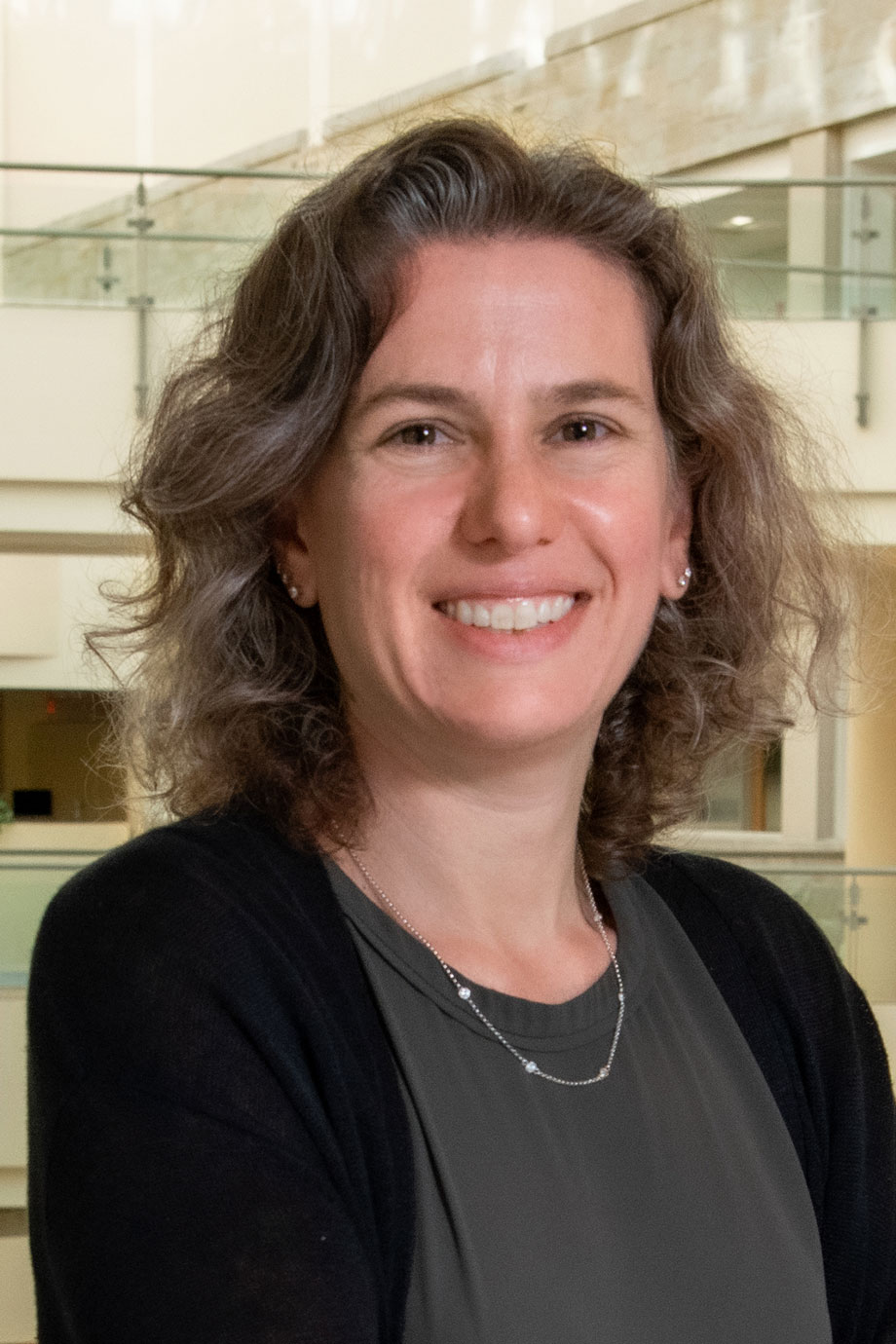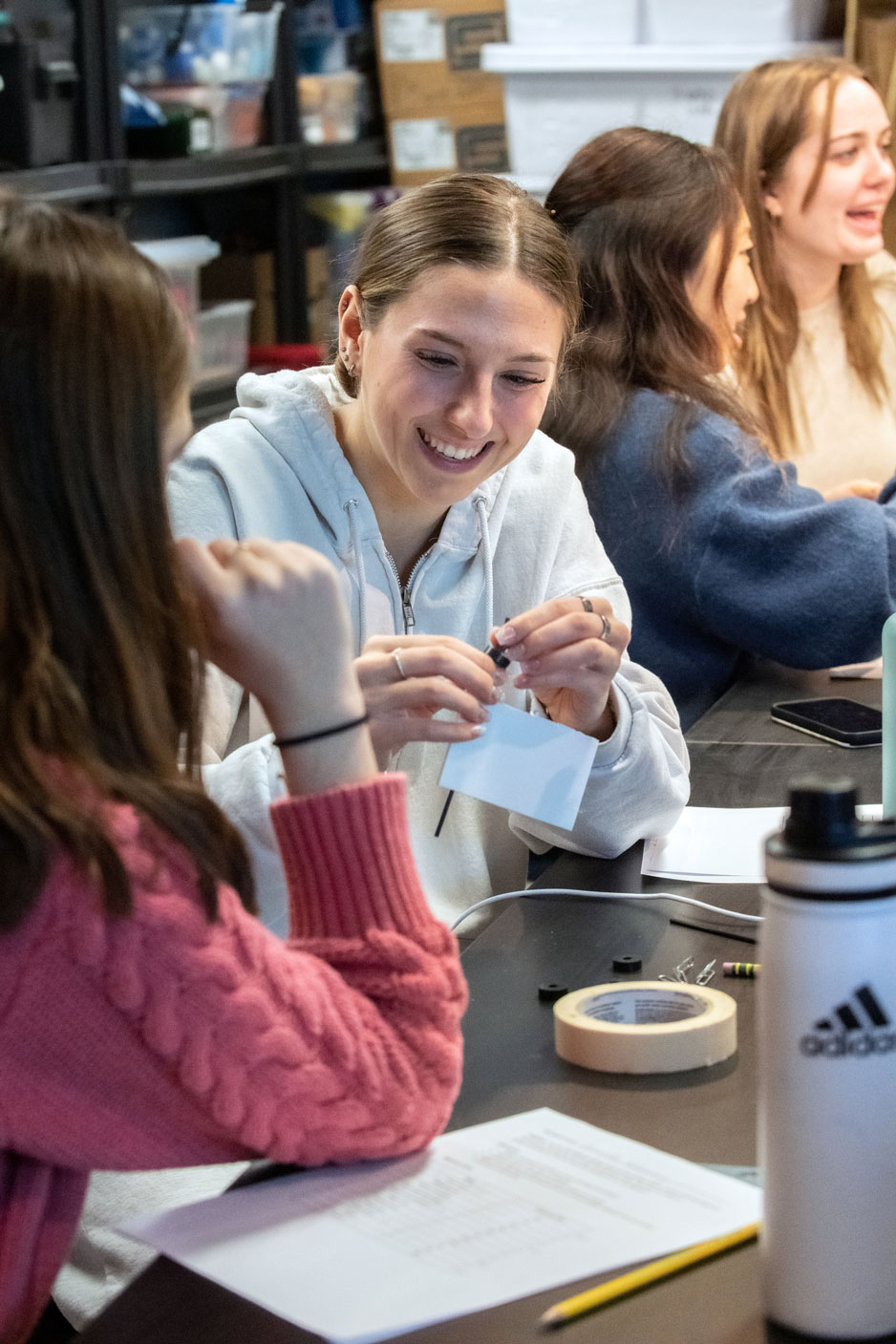On most days at 1LT Charles W. Whitcomb School—a middle school in Marlborough, Mass.—seventh-grade science classes are loud.
“We’re collecting data and then analyzing it in small groups. We’re huddled around Chromebooks to run a simulation. There’s lots of discussion—in pairs, small groups, lab groups, as a whole group,” says Whitcomb science teacher Benjamin DiFrancesco. “There’s a lot of shuffling around, and that creates some noisy classes—but I think that’s good.”
DiFrancesco teaches a science curriculum that’s designed to benefit and engage students in science by allowing their interests and curiosities to drive learning. His school district is rolling out the curriculum with support from the OpenSciEd Equitable Instruction (OEI) Initiative, co-led by Bryk Faculty Fellow and Professor Katherine McNeill.
“ This work is focused on changing what middle school science looks like to get kids excited and interested in science, particularly kids who traditionally have not been.” ”

Bryk Faculty Fellow and Professor Katherine McNeill
McNeill was part of the team of education specialists who developed the OpenSciEd middle school curriculum based on the Next Generation Science Standards, which identify core scientific concepts and scientific practices that all K–12 students should master to prepare for college or careers. When the curriculum was completed in 2021, she launched the OEI Initiative, supported by a $5.3 million grant from the Massachusetts-based One8 Foundation, to help implement it in Massachusetts schools where at least 15 percent of students are designated low income.
“In middle school, a lot of students become uninterested in science or don’t see science as part of who they are—particularly girls and minoritized students,” says McNeill. “This work is focused on changing what middle school science looks like to get kids excited and interested in science, particularly kids who traditionally have not been.”
The OEI Initiative launched with a cohort of 40 schools in 2021. It now supports more than 500 teachers in 104 middle schools across Massachusetts—which represents 32% of all middle/junior high schools in the Commonwealth.
Schools that apply and are approved for OEI participation receive funding for test tubes, thermometers, light meters, safety goggles, and other durable equipment. They also get access to three years of professional development courses and one-on-one coaching for teachers and administrators.
OpenSciEd Equitable Instruction Initiative supports
500+
teachers
104
Massachusetts middle schools
32%
of all Mass. middle/junior high schools
While the OpenSciEd curriculum is freely available for teachers to download and implement on their own, support from the Lynch School’s OEI Initiative has been invaluable to DiFrancesco. The OpenSciEd teacher’s guides are dense, he says, and the student-led teaching style is easier to master with feedback from a coach. The OEI Initiative staff have also helped his school adapt OpenSciEd for Whitcomb’s emerging multilingual students. The curriculum has taken time to get used to, DiFrancesco says, but the investment has been worthwhile.

“I like how interactive it is, how hands-on it is, how much it includes students—and I think the students respond to that as well.”
Despite the challenge of high faculty turnover in Massachusetts middle schools, McNeill is pleased with the OEI Initiative’s progress.
“We’re helping teachers shift their vision of what’s possible,” she says. “We’re seeing some amazing science instruction in schools.”
To ensure this success isn’t confined to the Bay State, McNeill is using a $2.9 million grant from the National Science Foundation to study OpenSciEd implementation in Massachusetts and use it as a model for schools elsewhere.
“The plan,” she says, “is to create resources and videos of teachers using those tools so other folks across the entire country can use them.”



